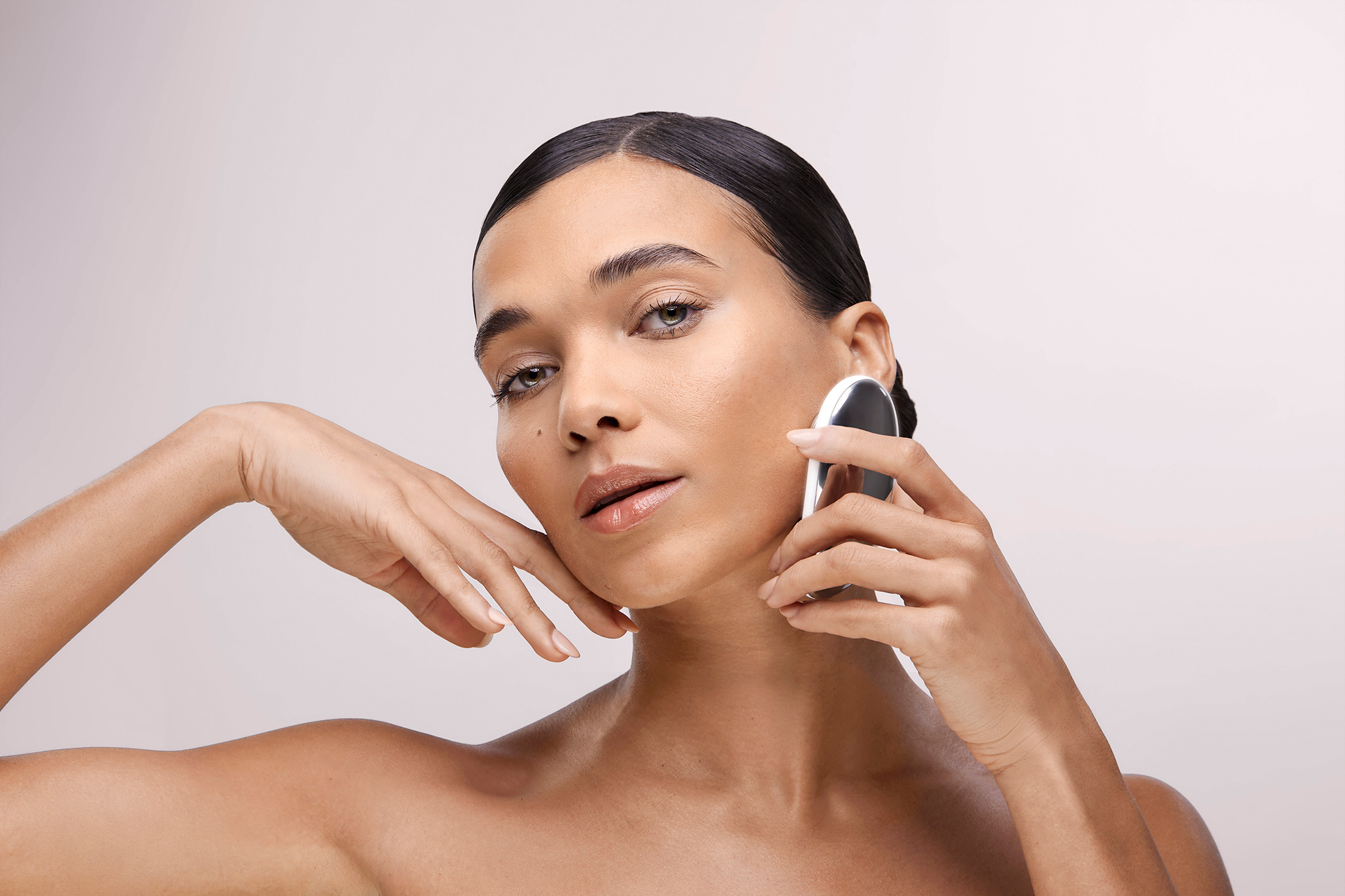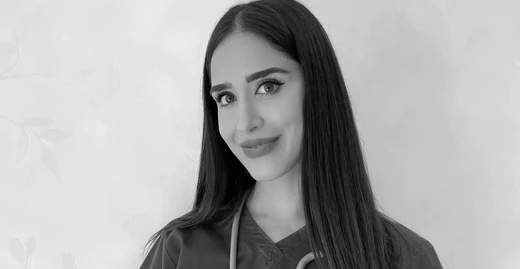Microcurrent facials, often referred to as the 'non-invasive facelift’ by aestheticians and beauty editors, use tiny electrical waves to gently contract the facial muscles. This makes the muscles grow stronger, resulting in an instantly more lifted, toned and sculpted appearance.
Celebrities such as Jennifer Aniston, Margot Robbie and Bella Hadid are all advocates for microcurrent facials in helping maintain their smooth and contoured complexions. While this technology is highly praised within the industry, you might be asking, ‘but what is a microcurrent facial?’ Here are 5 things you need to know before introducing microcurrent into your routine.

Can microcurrent facials be achieved at home?
Microcurrent devices like the NuFACE TRINITY+ are designed to be simple, effective and user-friendly for home use. They deliver low-level electrical current with a compact, super efficient hand-held device that’s easy to travel with; ideal for holidays, weekends away and event-prep.
At what age should I start using microcurrent?
Microcurrent facials are for preventing and reversing the visible signs of ageing, which places them well for all age groups. Starting in your 20’s means that you’re seeing the tightening, toning and sculpting results sooner, enhancing the anti-ageing effect as you get into your 30’s. A device like the FOREO BEAR is incredibly easy to use and is a great microcurrent device to start using in your 20’s because of its simple, yet powerful functionality.

Can microcurrent be used alongside botox?
Yes. However, we always advise you to consult your doctor for specific post-treatment recommendations. Generally speaking, if you’ve had a botox or dermal filler session, I would advise you wait 2 weeks post-treatment to have any microcurrent facial.
Is microcurrent painful?
Microcurrent facials are completely painless. In fact, they can even be relaxing! The ZIIP HALO is especially gentle as it uses a blend of low-level nanocurrent and microcurrent to stimulate the facial muscles. This device is also the only at-home device that uses nanocurrent—tiny waves that stimulate collagen production below the skin’s surface.

How expensive is microcurrent?
At-home microcurrent devices are generally inexpensive and a good value for money, especially when you can use them frequently in the comfort of your own home. It’s an empowering experience to achieve salon-level facials within minutes, and the prices are fair for the kind of results you get.
Is microcurrent safe?
Before starting your at-home microcurrent facials, there are a few instances where microcurrent devices would not be suitable. These include pregnancy, active skin conditions such as acne, along with heart conditions or implantable devices. Always check with your healthcare provider before purchasing if you’re unsure.





